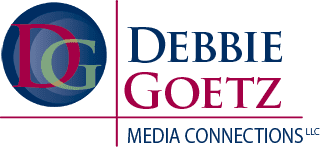The Difference Between Publicity and Advertising
Most of the article follows in italics:
“When a book is launched, the goal is to create awareness about the author and his or her title for a variety of reasons including sparking book sales, building the author’s brand, positioning the author as an expert, and attracting professional opportunities for the author such as speaking engagements, professional advancement, and future publishing options.
Publicity and advertising are two strategies employed to create awareness. Most people have a clear understanding of advertising since they’re exposed to it everyday as they watch television, read a newspaper or visit an online news site. Publicity, however, is seamless to most consumers as the author, person, product, etc. is part of the news.
In advertising, someone—the publisher or author—pays the media outlet for advertising space or airtime. The buyer has 100% control over what is in the advertisement and when it appears. The primary benefit of advertising is control.
With publicity, it’s the book publicist’s job to convince the media the author will provide readers or listeners with meaningful information—whether entertaining, insightful, educational, inspiring, or controversial—and then to make the author part of the news in some way. Examples of media coverage include feature stories, articles, book reviews, interviews, op-ed pieces, expert commentaries, etc. There is no payment from the author or publicist to the media for this coverage. Each of the parties involved–the media outlet and author–get something they want and need.
Put simply, the role of a book publicist is to make their authors newsworthy. The result gives the author immeasurable credibility. The benefit of being “seen on” or “featured in” well respected media outlets lasts long after a publicity campaign ends. The primary benefit of publicity is credibility, and when it works, it is priceless.
The best way to explain the difference between publicity and advertising is to pick up a magazine and find a story featuring an author, and in the same issue find an advertisement for a book. The article gives the author and his title credibility as the reader knows the magazine thinks enough of the person to incorporate him or her into the story. The advertisement gives the author exposure; however the reader also knows someone paid for this advertisement. Therein lies the key difference: credibility vs. control.
An important point authors should keep in mind is when the media does a story or interview, the publicist and author loses control. Publicists suggest direction for the coverage, but publicists can’t control if they cover the author, how he or she is covered or when. A producer or editor can do whatever they want and go in any direction. They may sing the praises of an author and his or her book, or spin the story in an unforeseen direction, including writing a bad review.
When you want planned, controlled exposure, advertising is the route to explore. If you are considering publicity, know there are no guarantees, but again, when it works, it literally provides coverage you can’t buy.”
I like this article because it relates not only to book publicity but to publicity in general. One of the disadvantages of public relations is that there are NO guarantees. With paid advertising you get guarantees. The size of the ad, the number of times it runs, the wording, format and design – you have a say in all of that. There is no guarantee that people will respond to the ad, but you do have complete control over the message, how it’s delivered and to whom it is delivered. And paid advertising can be extremely expensive.
With PR, you put your story into the hands of a third party and hope that you approve of the final product, which you won’t see until after it goes to print. In most cases, the third party validation of your work, book, organization, business etc. will pay off in increased credibility and visibility for you. If you craft your message carefully and get your message into the right hands (reporter, editor, journalist) the return on your investment could be tremendous, usually at a lower cost than advertising.
As with anything else in life, know what you are getting into; weigh the pros and cons. Give yourself time to make informed decisions about the best way to promote your book, business, etc. Then go and get yourself NOTICED!!
